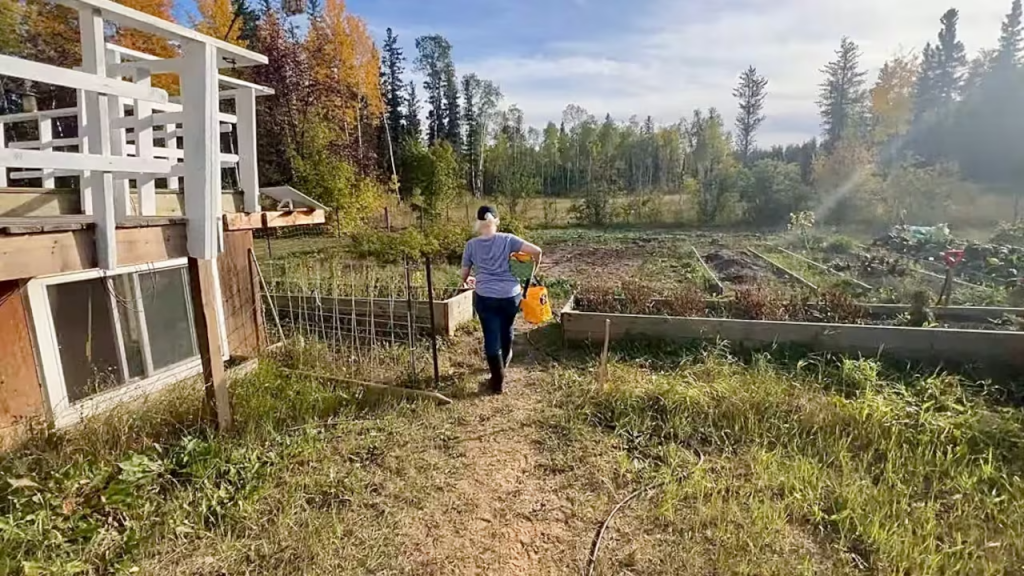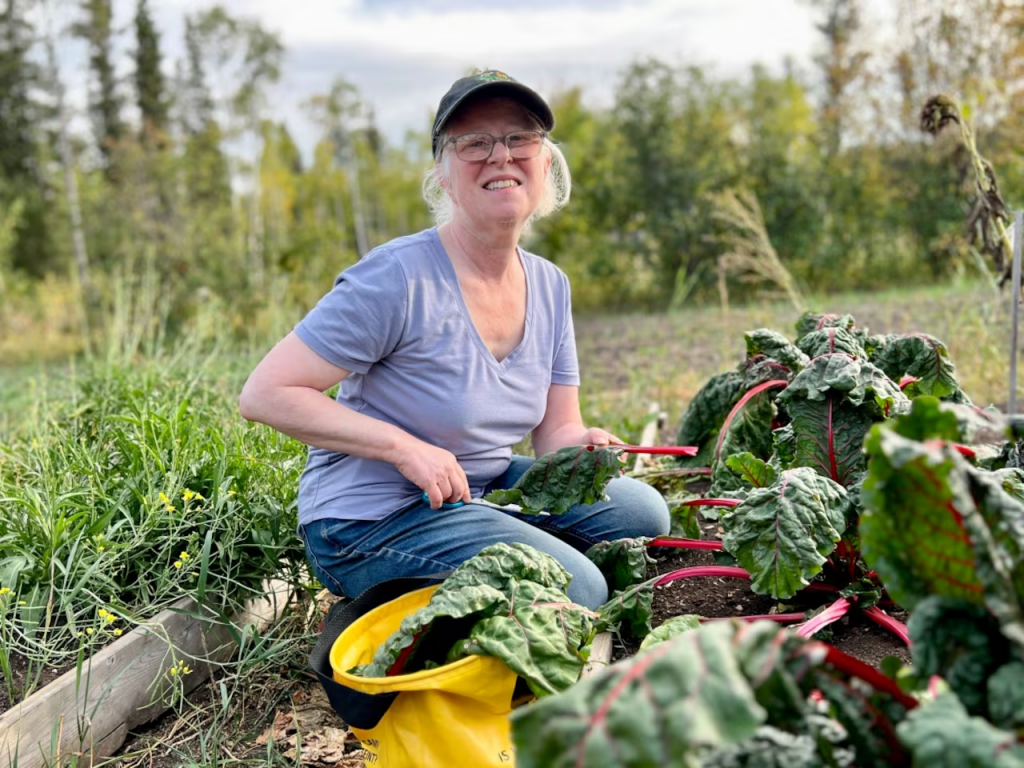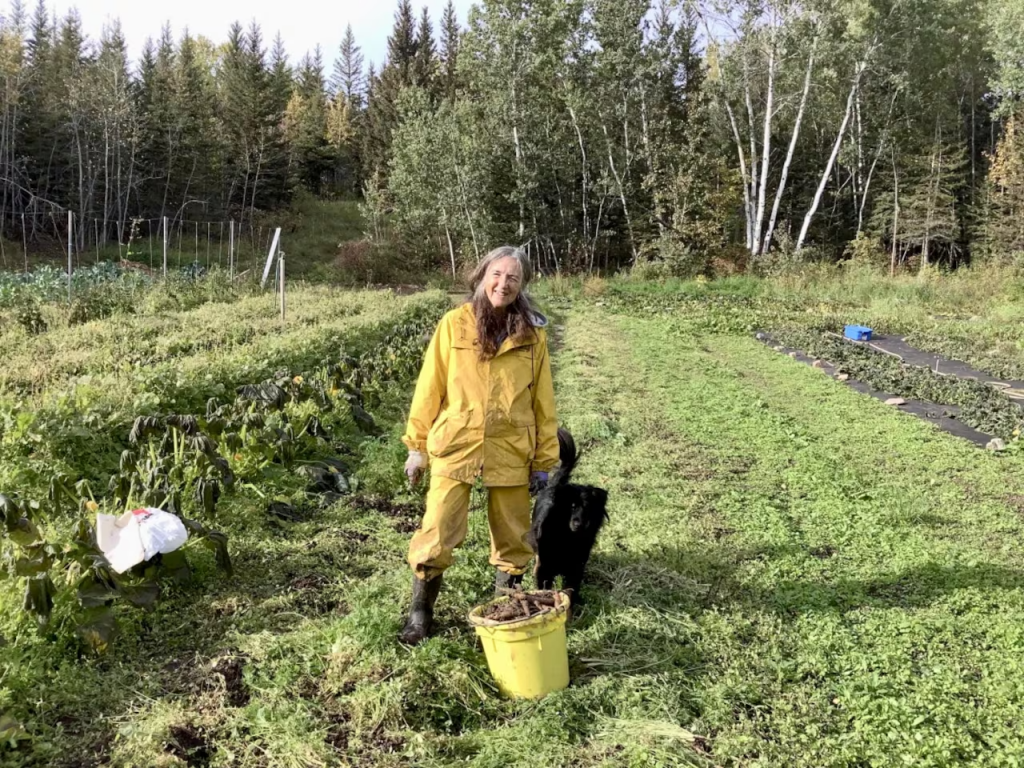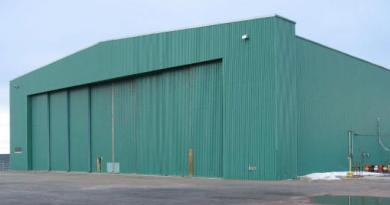Fort Smith growers say new permit rules create barriers for local food producers

Farmers say requiring permits to sell fresh produce makes it harder for them to contribute to food security
Northern food growers say territorial permit rules are placing unnecessary barriers on selling fresh produce, making it harder for small farmers to contribute to food security in the North.
Helena Katz said she was blindsided after learning she needed to apply for — and pay for a Northwest Territories food establishment permit, just to sell zucchini, kale, and Swiss chard from her Flat World Alpaca Farm at this years farmers market.
Katz helped start Fort Smith’s Desnedé Farmers Market in 2016 and said that, at the time, environmental health officials told her, and later, the market’s board, that a permit was not required to sell fresh produce.
“We were told if people were going to be selling processed or prepared food, that they needed a temporary food establishment permit, which makes sense,” she said.
“We’re literally pulling from the ground, putting in a bucket and driving down the road to the market. They were not concerned about that.”

The permit requires applicants to complete an online food safety training course and pay for certification in addition to paying for the permit itself.
The new costs add up to more than a hundred dollars.
“Then you’re paying $20 at the market for your table. So you’re already $120 in the hole before you even sold anything,” Katz said. “But you’re selling your zucchini for $4 a zucchini.”
Katz said it feels backwards, especially when residents are being encouraged to grow and buy locally.
She said the requirement undermines the push for local food security and food sovereignty in the North, where residents have already seen how fragile supply routes can be after years of summer wildfires and road closures.
“In some cases, [customers] actually been out to our places as well,” she said. “So they really do know not just who they’re buying from, but they also know where their food is being harvested and it’s being grown.”
Katz said the confusion led the territorial government to waive permit fees this year for small producers. But she said it’s not enough. She wants the regulations themselves changed.

In Alberta, small producers like her don’t need a food permit to sell fresh produce. She said the Territory should have regulations that match those standards.
She said the cost of permits also hits small communities harder. The fee for a temporary food establishment permit recently increased from $54 to $70, the same rate charged in larger centres like Yellowknife.
“Our community is, like, almost one tenth the size of Yellowknife, and we’re paying exactly the same fee,” Katz said. “Even though it takes a heck of a lot more work to be able to absorb that fee.”
She said there’s already a precedent within government for recognizing that communities of different sizes have different levels of capacity, and the same principle should apply to how environmental health sets its fees.
Katz hopes the rules will be changed before next season, so farmers in the North can continue to sell local food without the added red tape.
The territorial government did not respond to a request for comment by the deadline.
Another local grower, Beverly Tupper, sells produce from her farm in Fort Fitzgerald, Alberta, where no permit is required for unprocessed vegetables.
She said imported food often carries its own risks, from salmonella to listeria. Growing and selling local food also keeps money circulating in the community and helps make residents less dependent on what comes from outside the community.
“When a fresh product has been travelling for a week or two, it’s obviously losing quite a bit of its nutrition on the way,” she said. “So from a health perspective and from an economic perspective, I think it’s very important.”
She said the timing of the new permit requirement was also frustrating, coming right in the middle of harvest season and leaving little time for growers to apply.
Tupper has been gardening for decades and said she’s long believed that people in the North depend too much on imported food; it’s been exciting to see more residents, especially younger people, taking up gardening and producing their own food in recent years.
She said the growing momentum around local gardening should be supported at every level, not discouraged.
Related stories from around the North:
Canada: Aurora College research team wants to change the way the North looks at food security, CBC News
Finland: One in 10 Finnish families with young children dealing with food insecurity: survey, Yle News
United States: New farm bill program aims to fight food insecurity in Alaska, Alaska Public Media



